Have you ever met a dog so polite it almost made you to melt, or one so wild it turned your living room into a circus? Dogs are as varied in personality as humans, and while every pup is capable of learning manners, some breeds just seem born to behave—or misbehave! If you’re dreaming of a gentle companion or bracing for a whirlwind of chaos, knowing which breeds top the charts for best and worst behavior can change everything. From the loyal Labrador to the defiant Dachshund, let’s journey through the world’s best and worst-behaved dog breeds. Ready to discover which furry friends are angels—and which are little rebels?
Labrador Retriever: The Polite People-Pleaser

Labrador Retrievers have earned their reputation for being some of the friendliest, most even-tempered dogs around. Their eagerness to please makes them a dream for first-time owners. Labs are famously gentle with children, patient with strangers, and quick to learn house rules. Whether you want a jogging buddy or a couch companion, this breed adapts to nearly every situation with grace. They thrive on positive reinforcement and genuinely want to make their humans happy.
Their trainability is almost legendary; Labs have been guide dogs, therapy animals, and even search-and-rescue heroes. It’s not just their intelligence that makes them so well-behaved, but their steady temperament. However, their friendliness means they aren’t always the best guard dogs—don’t expect your Lab to scare off intruders! Still, for families seeking a reliable and loving companion, Labradors are a gold standard in doggy manners.
Golden Retriever: The Gentle Companion
Golden Retrievers are the poster pups for good behavior. These dogs are known for their loving attitudes, tolerance, and calm nature, making them a top pick for families, therapy work, and just about anyone wanting a reliable companion. Goldens are incredibly patient with children and other pets, rarely showing aggression or stubbornness. Their sunny personalities shine whether they’re playing fetch or just lounging at your feet.
Training a Golden Retriever is often a joy, as they’re both eager to learn and highly motivated by praise (and treats!). Their empathetic nature means they often sense your mood, offering comfort when you’re down. While they need regular exercise and mental stimulation, they’re generally easy to manage. If there’s a downside, it’s that their friendliness can sometimes border on over-exuberance, but with gentle correction, they quickly fall back in line.
Poodle: The Well-Mannered Genius
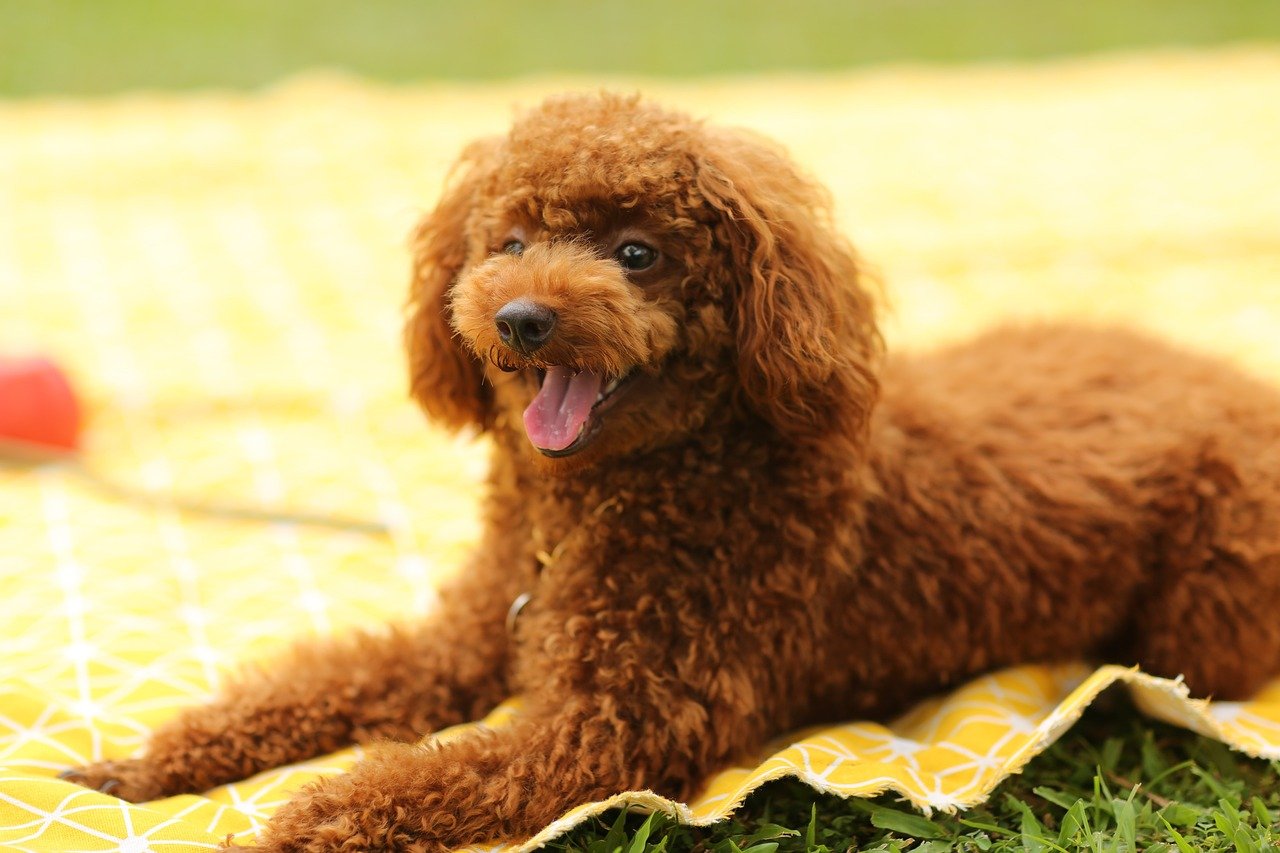
Poodles, whether toy, miniature, or standard, are celebrated not just for their intelligence but also for their exceptional manners. They’re quick learners and thrive on mental stimulation, making training sessions both fun and productive. Poodles often excel at obedience competitions and agility sports, showcasing their ability to follow commands with precision. Their eagerness to please makes them easy to live with, even for novice owners.
Beyond their brains, Poodles are sensitive and intuitive, making them wonderful family members. They pick up on household routines and adapt quickly to changes. While their energy levels mean they need regular activity, their behavior indoors is typically calm and composed. Some say Poodles act like they have a touch of “old soul” wisdom—always dignified, never rowdy. Regular grooming is a must, but their overall demeanor is pure class.
Border Collie: The Obedient Overachiever
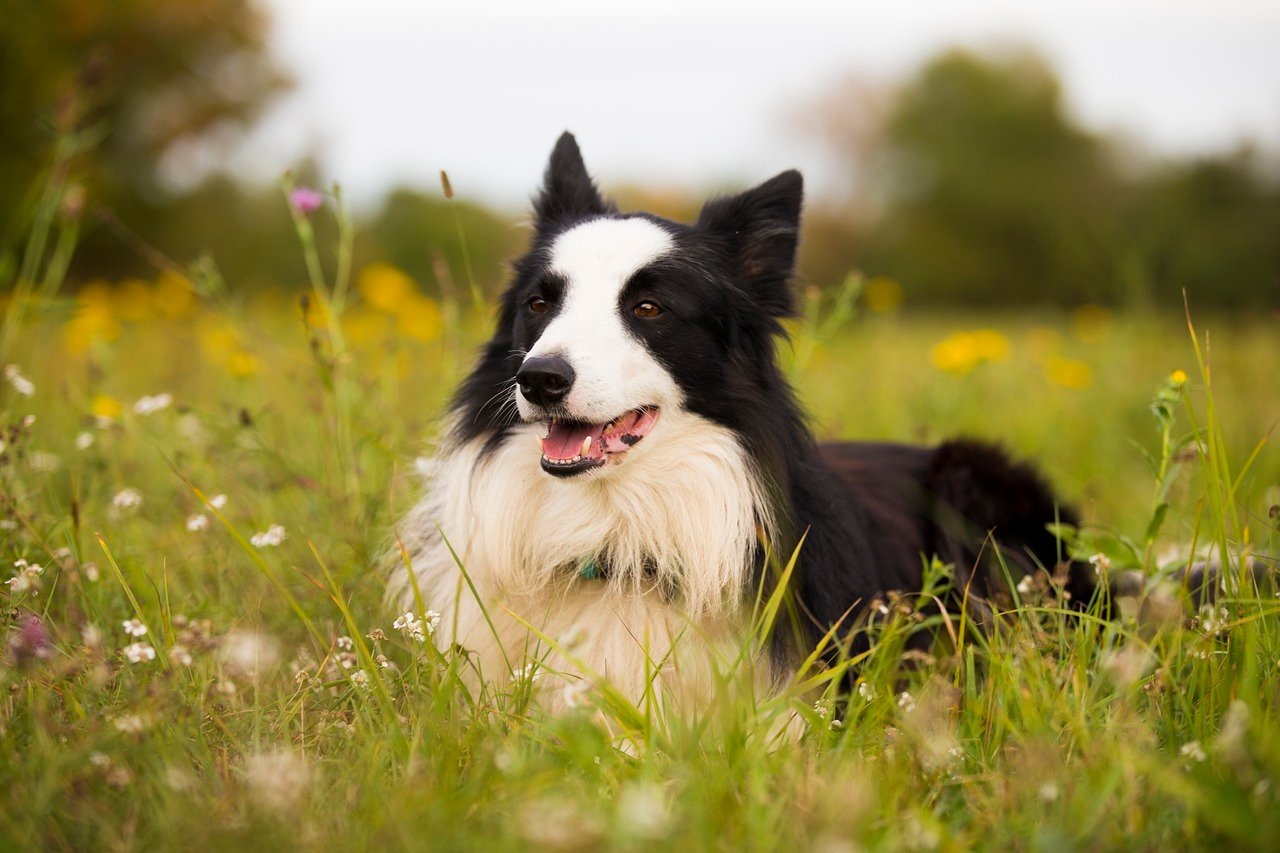
Border Collies are often described as the “Einstein of the dog world,” and their behavior reflects their sharp minds. These dogs live to work and relish having a job, whether it’s herding sheep or mastering complex tricks. Their devotion to their owners makes them exceptionally responsive to training. When given enough mental and physical stimulation, a Border Collie’s manners are nearly flawless.
However, their energy can be overwhelming if not channeled appropriately. Owners who meet their exercise needs are rewarded with a focused, disciplined companion who seems to anticipate your every move. Border Collies are rarely aggressive or destructive when their minds are occupied. If you love an active lifestyle and want a dog that thrives on structure and routine, this breed is a standout for good behavior.
Shih Tzu: The Polite Lap Dog
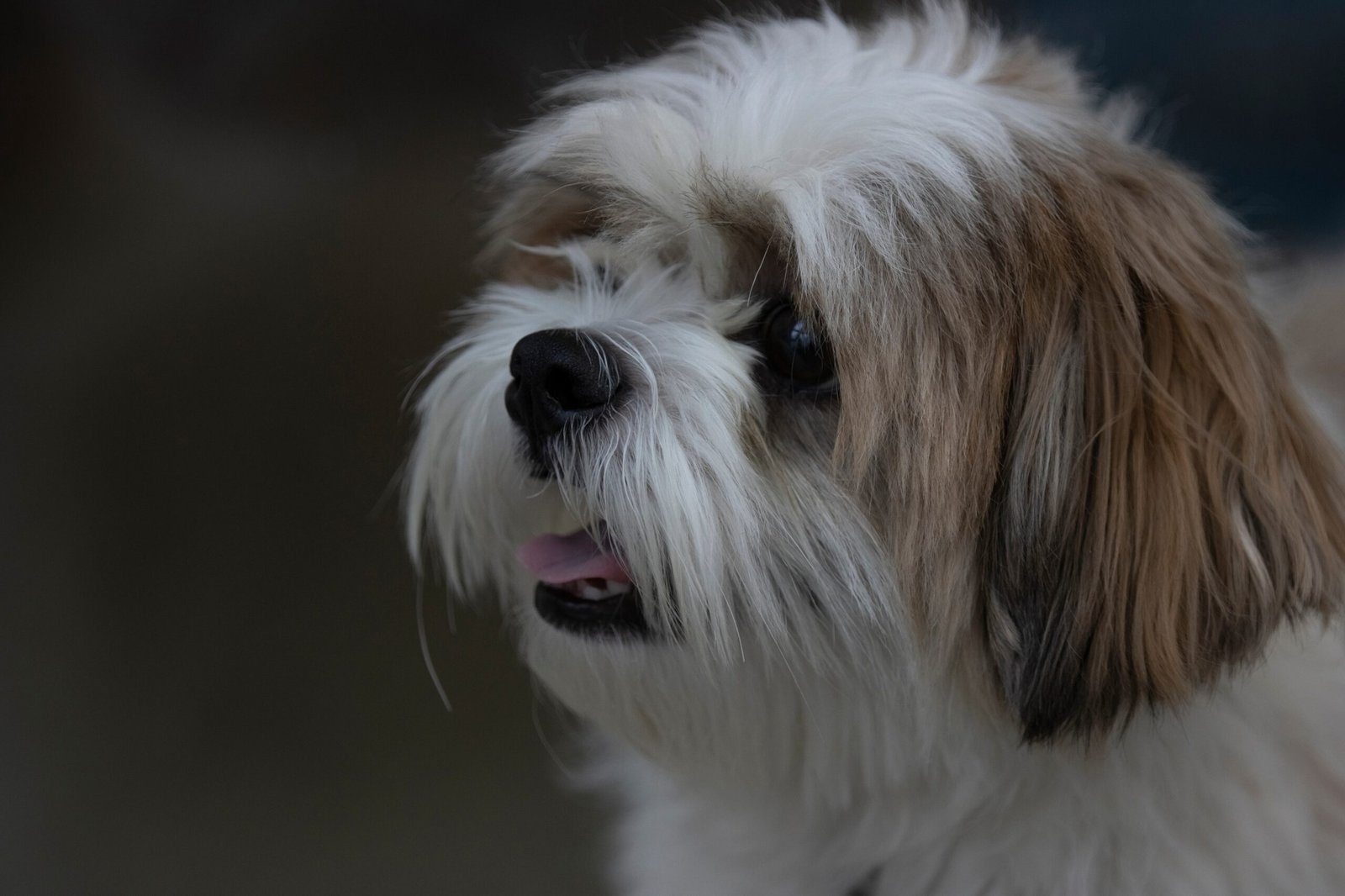
Shih Tzus may be small, but their manners are mighty. These dogs were bred to be royal companions, and their calm, affectionate nature is perfect for apartment living or homes with limited space. Shih Tzus are rarely aggressive and tend to get along well with kids, other pets, and even strangers. They’re content to lounge around, happy as long as they’re with their favorite humans.
Training a Shih Tzu is usually straightforward, as they respond well to gentle guidance and praise. They’re not prone to barking excessively or getting into trouble, especially when given consistent routines. Their friendly disposition and low-key energy level make them easy to manage. While they might need a bit more grooming than some breeds, their well-mannered behavior more than makes up for it.
Boxer: The Playful Rule-Follower
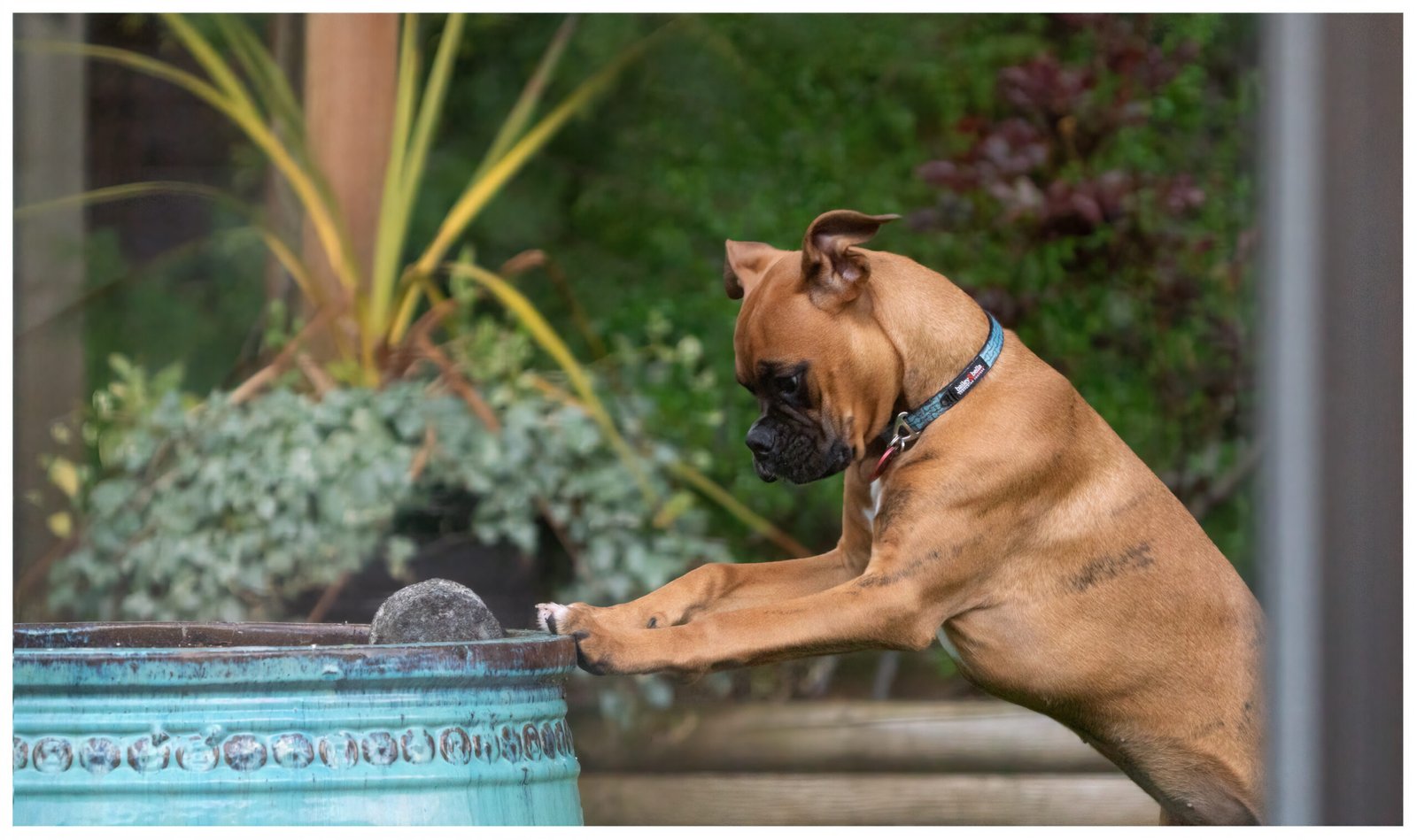
Boxers are often thought of as goofy clowns, but beneath their playful exterior lies a dog with a real sense of decorum. Loyal, protective, and affectionate, Boxers are quick to bond with their families and eager to obey house rules. They love children and are usually gentle despite their strength and size. Boxers are quick learners who thrive on positive reinforcement.
While their exuberance can sometimes be mistaken for mischief, Boxers rarely act out of defiance. With regular exercise and mental engagement, they channel their energy into play rather than destruction. Boxers are also known for their patience and adaptability, making them a great fit for active families. Their devotion means they’ll try their best to behave, even if they sometimes get a bit too excited.
Newfoundland: The Gentle Giant
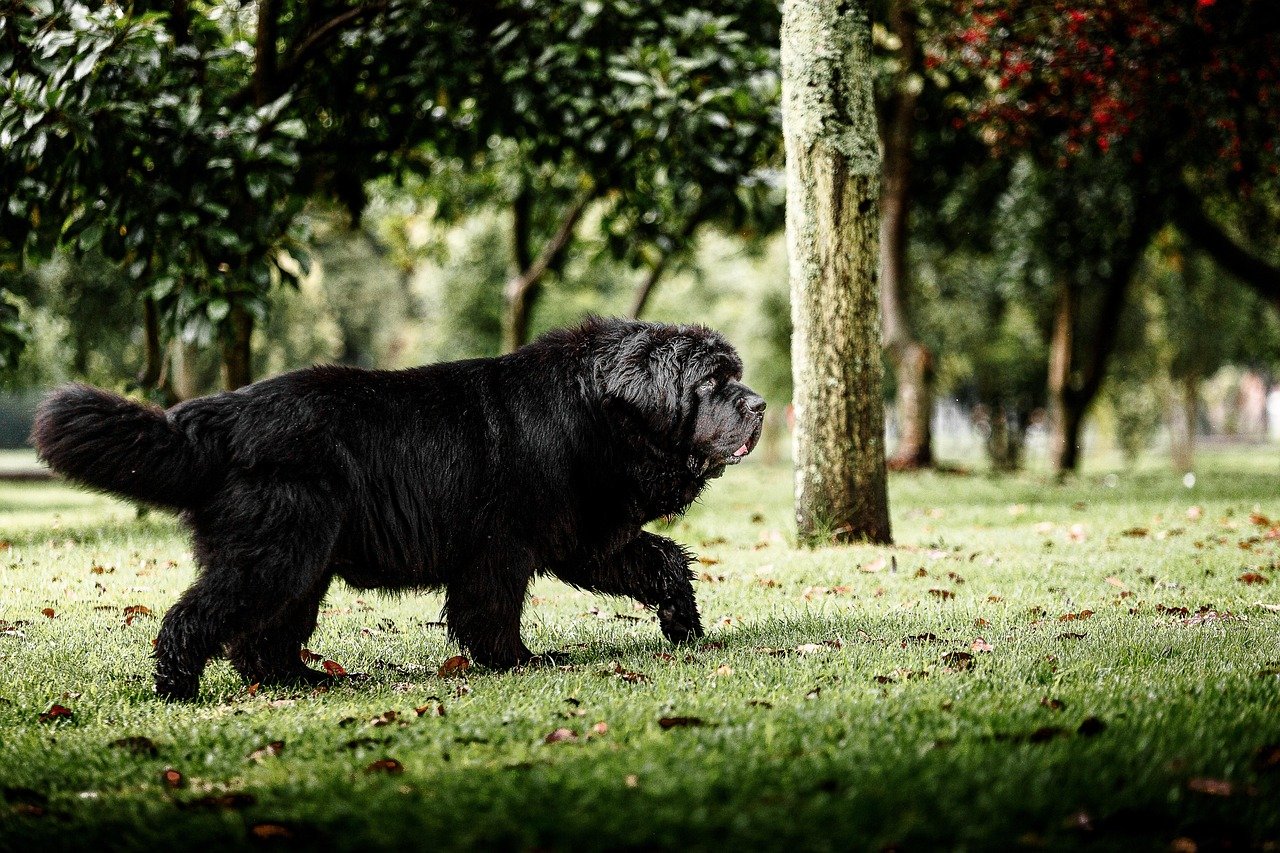
Newfoundlands are one of the largest dog breeds, but their hearts are even bigger. Known for their gentle, calm demeanor, these “gentle giants” are beloved for their patience with children and easygoing nature. They’re rarely aggressive and have a reputation for being exceptionally tolerant, even in chaotic households. Newfoundlands are also famously protective without being overbearing.
Their intelligence and eagerness to please make them easy to train, despite their size. Newfoundlands tend to be laid-back indoors and are content with moderate exercise. Their steady temperament makes them ideal for therapy work or as family pets. The only challenge might be their drool and shedding, but their good manners more than compensate. Living with a Newfoundland feels like having a wise, gentle guardian always by your side.
Cavalier King Charles Spaniel: The Sweet-Tempered Aristocrat
Cavalier King Charles Spaniels are the epitome of charm and grace. These small dogs are known for their affectionate, gentle personalities and their ability to get along with just about everyone. Cavaliers are rarely aggressive and love being part of the family, snuggling up on laps or playing with children. Their easygoing nature makes them adaptable to a variety of living situations.
Training a Cavalier is usually a breeze, as they respond well to positive reinforcement and have a genuine desire to please. They’re not prone to barking or destructive behavior, especially when their social needs are met. Cavaliers thrive on companionship and don’t like being left alone for long, but when they’re with their people, their good behavior shines. For those seeking a little dog with a big heart and impeccable manners, Cavaliers are hard to beat.
Greyhound: The Calm Couch Potato
Despite their reputation as racing dogs, Greyhounds are among the calmest and most well-mannered breeds you’ll find. Known for their gentle, laid-back nature, Greyhounds are surprisingly low-energy indoors and are content to spend hours lounging on the sofa. They’re polite with strangers, gentle with children, and rarely display aggression.
Greyhounds are easy to house-train and respond well to gentle guidance. Their quiet demeanor makes them excellent pets for apartments or households seeking a peaceful companion. While they do enjoy a good sprint outdoors, their indoor behavior is almost cat-like in its tranquility. Greyhounds aren’t known for barking or causing trouble, making them an ideal choice for anyone wanting a relaxed, well-behaved dog.
Australian Shepherd: The Hardworking Rule-Follower
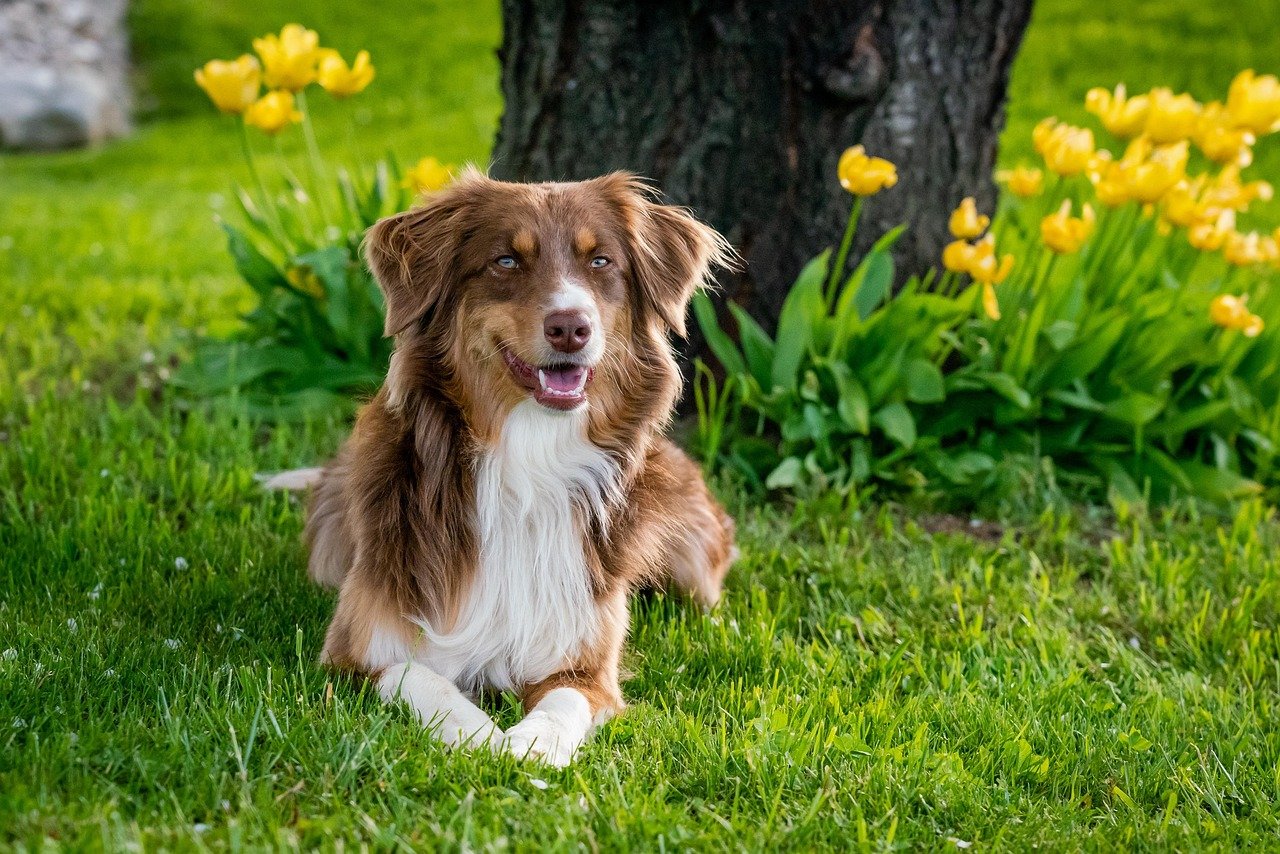
Australian Shepherds are the definition of hardworking and loyal. These intelligent dogs thrive on routine and structure, making them some of the best-behaved dogs for owners who provide regular training and activity. Aussies are quick to pick up commands and relish having a job to do, whether it’s herding livestock or learning agility courses.
Their loyalty to their families is unmatched, and they’re usually gentle with children and other pets. Australian Shepherds are not typically aggressive but can be wary of strangers, making early socialization important. When their minds and bodies are kept busy, their behavior is nearly impeccable. Aussies are happiest when they’re part of an active household that appreciates their smarts and willingness to please.
Chihuahua: The Tiny Tyrant
Chihuahuas may be small, but their personalities are anything but! Known for their feisty attitudes, Chihuahuas can be some of the most challenging dogs when it comes to behavior. Their strong-willed nature often leads them to test boundaries, and without consistent training, they can quickly become little tyrants. Many Chihuahuas develop “small dog syndrome,” believing they rule the roost.
While they’re fiercely loyal to their people, Chihuahuas are often wary of strangers and can be nippy if not properly socialized. Their tendency to bark at the slightest provocation can drive even the most patient owner up the wall. With firm, gentle guidance and plenty of socialization, they can learn manners, but they rarely reach the level of calm seen in larger breeds. Living with a Chihuahua is never dull, but it does require a steady hand.
Dachshund: The Stubborn Mischief-Maker
Dachshunds are famous for their stubborn streak. These little dogs have big personalities and a mind of their own, often making training a real challenge. Their independent nature means they’re not always eager to please, and they can be prone to ignoring commands if something else catches their interest. Dachshunds are clever, but they use their intelligence for mischief as often as for good.
Their hunting background means they love to dig, bark, and chase, which can cause headaches for owners who aren’t prepared. Dachshunds can also be territorial and sometimes aggressive toward strangers or other animals. While they’re undeniably charming and devoted to their families, it takes patience and consistency to keep their wilder tendencies in check. Their antics can be hilarious, but don’t expect perfect manners without effort.
Jack Russell Terrier: The Unstoppable Dynamo
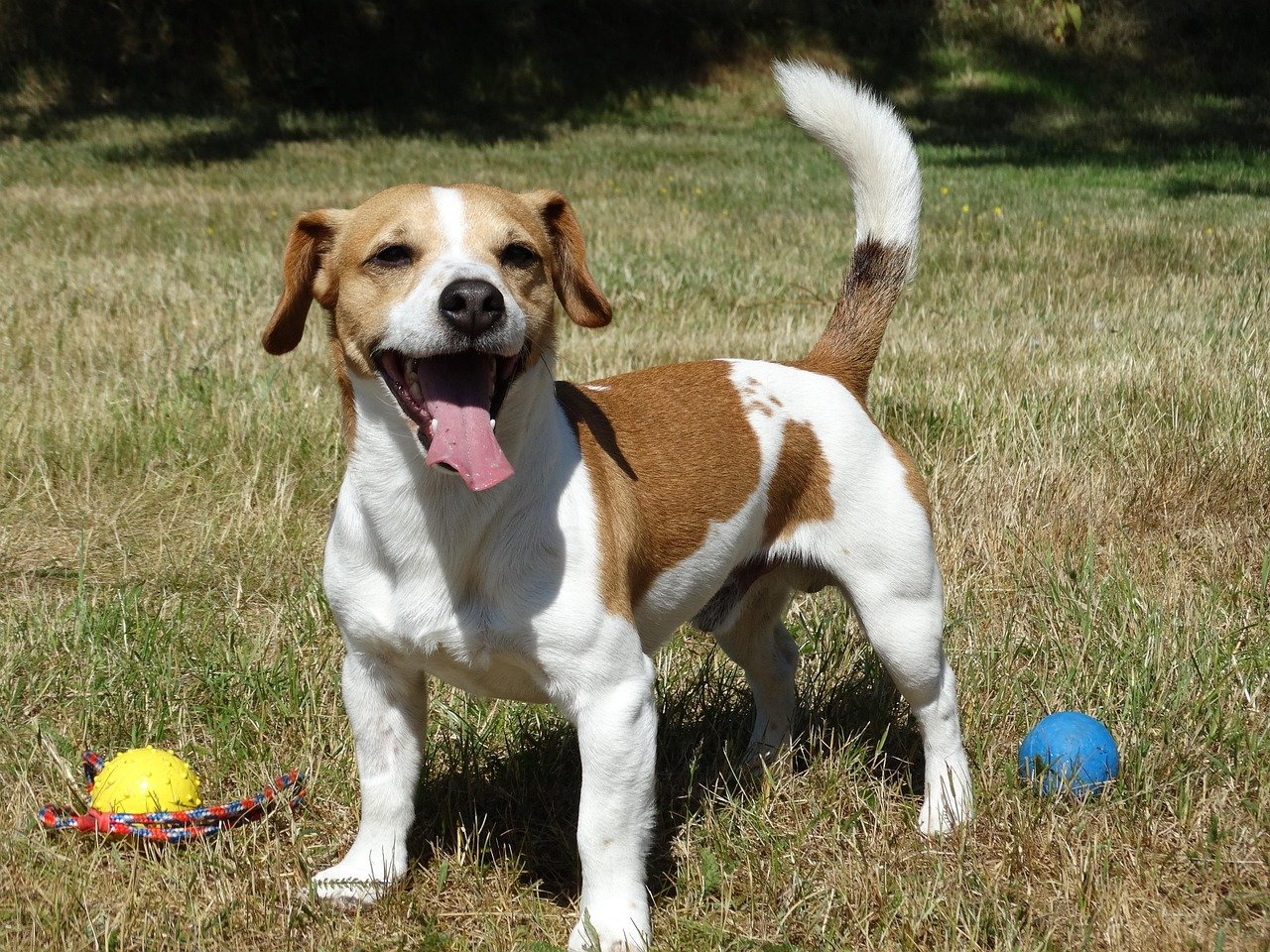
Jack Russell Terriers pack more energy into a small body than seems possible. Known for their boundless enthusiasm and sharp intelligence, Jack Russells are often a handful for even experienced dog owners. Their stubbornness and drive can make training a test of wills—they’re always looking for something to chase or a new adventure to start.
Without enough mental and physical stimulation, Jack Russells can turn destructive, digging up gardens or chewing on furniture. They’re also known for their loud, persistent barking. While they’re devoted to their families and can be very loving, their high energy and independent streak mean they’re rarely considered well-behaved without significant effort. Living with a Jack Russell is like living with a perpetual motion machine!
Afghan Hound: The Aloof Aristocrat
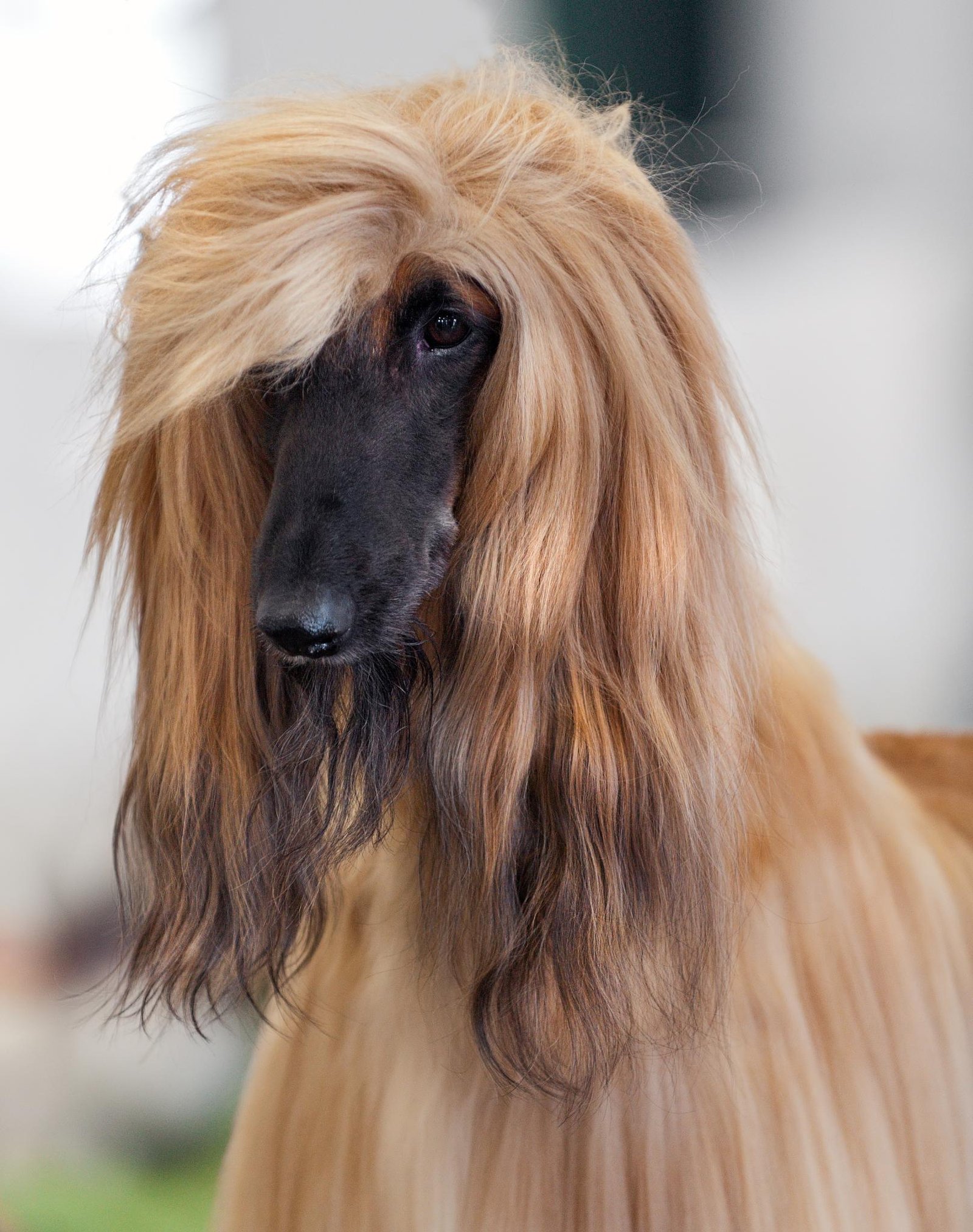
Afghan Hounds are stunning to look at, but their beauty comes with a price—these dogs are famously aloof and independent. While they’re not typically aggressive, Afghan Hounds have a reputation for doing things their own way, often ignoring commands unless there’s something in it for them. Their cat-like personalities mean they can be distant, and training requires patience and creativity.
Afghan Hounds are also known for their stubbornness and tendency to become bored quickly. They’re not naturally obedient, and their high prey drive can make them prone to chasing small animals. While their elegance is undeniable, don’t expect them to always follow the rules. Living with an Afghan Hound is a lesson in patience—and a reminder that beauty doesn’t always equal good manners.
Chow Chow: The Strong-Willed Guardian
Chow Chows are as independent as they come. These dogs are known for their strong-willed, sometimes aloof personalities, which can make training a challenge. They’re fiercely loyal to their families but can be suspicious of strangers and other animals. Chow Chows are not quick to forgive or forget, and their dominant streak means they often try to assert themselves as the boss.
Without early and consistent training, Chow Chows can become territorial and even aggressive. They need a confident owner who can establish clear boundaries. While they’re not usually destructive, their stubbornness can make even simple commands a battle of wills. If you want a dog who always listens, a Chow Chow might not be the best fit—but their loyalty is unmatched for those who put in the work.
Dalmatian: The Headstrong Free Spirit
Dalmatians are instantly recognizable thanks to their spotted coats, but their behavior is just as memorable. These dogs are known for their high energy and independent nature, which can lead to behavioral challenges if not properly managed. Dalmatians are clever, but their stubborn streak means they can be slow to obey commands and quick to find their own entertainment.
Without enough exercise, Dalmatians may become destructive, chewing on whatever they can find. They can also be wary of strangers and sometimes aggressive toward other dogs. Training a Dalmatian requires patience, consistency, and a sense of humor—they’re not above testing your limits! For active families willing to invest time and effort, Dalmatians can be wonderful companions, but don’t expect perfect manners right out of the gate.
Akita: The Proud Protector
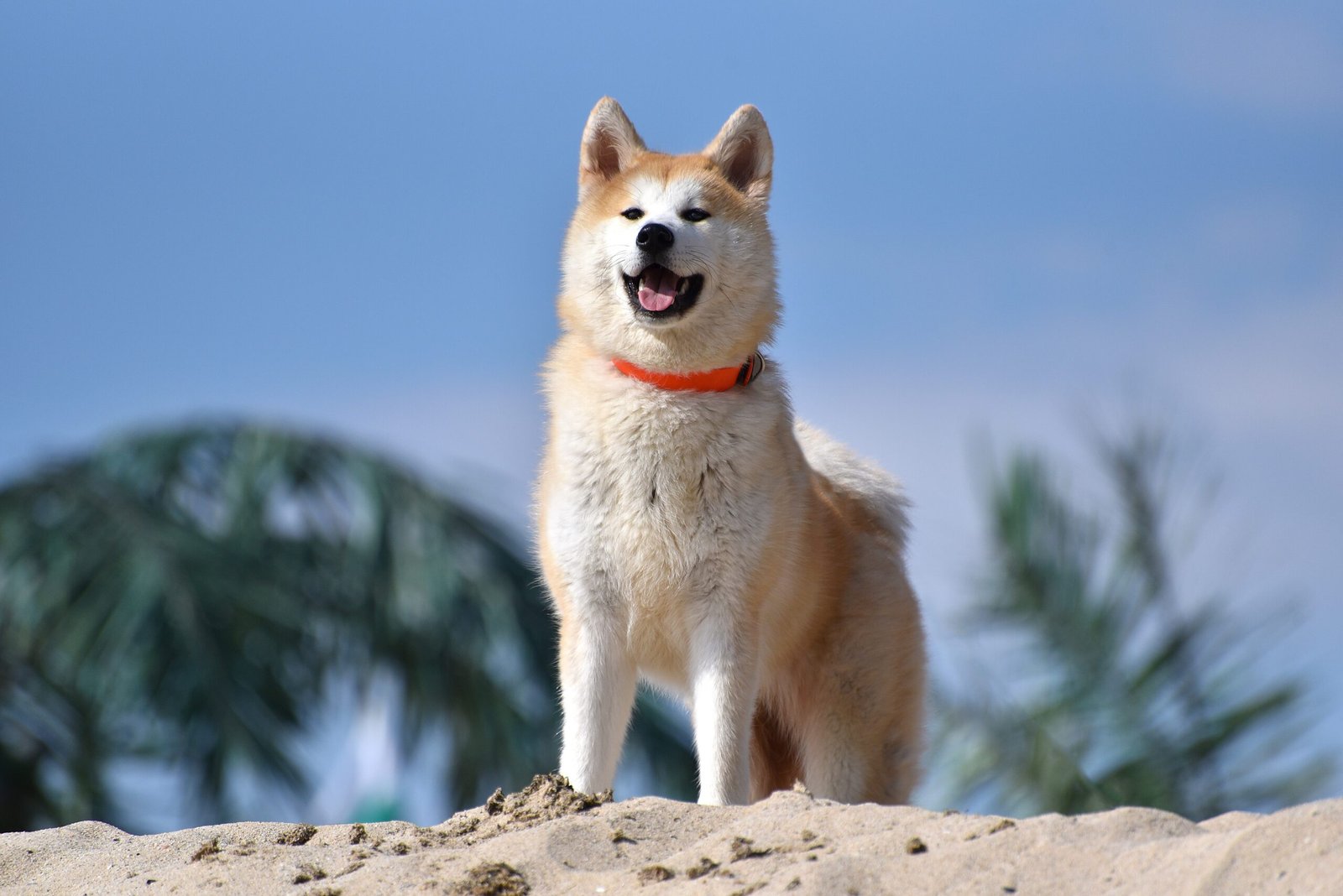
Akitas are renowned for their loyalty and protective instincts, but these qualities come with a stubborn, sometimes aloof personality. Akitas are not naturally obedient and require firm, consistent training. They’re often reserved with strangers and can be aggressive toward other animals if not socialized properly. Their independent nature means they sometimes ignore commands, especially if they see themselves as the leader.
Akitas bond closely with their families but are not overly demonstrative. They tend to be quiet indoors but need regular exercise and mental stimulation to prevent boredom-related misbehavior. Akitas require an experienced owner who can establish authority without resorting to harsh methods. While their loyalty is unmatched, their stubbornness can make them one of the more challenging breeds in terms of behavior.
Weimaraner: The Restless Spirit
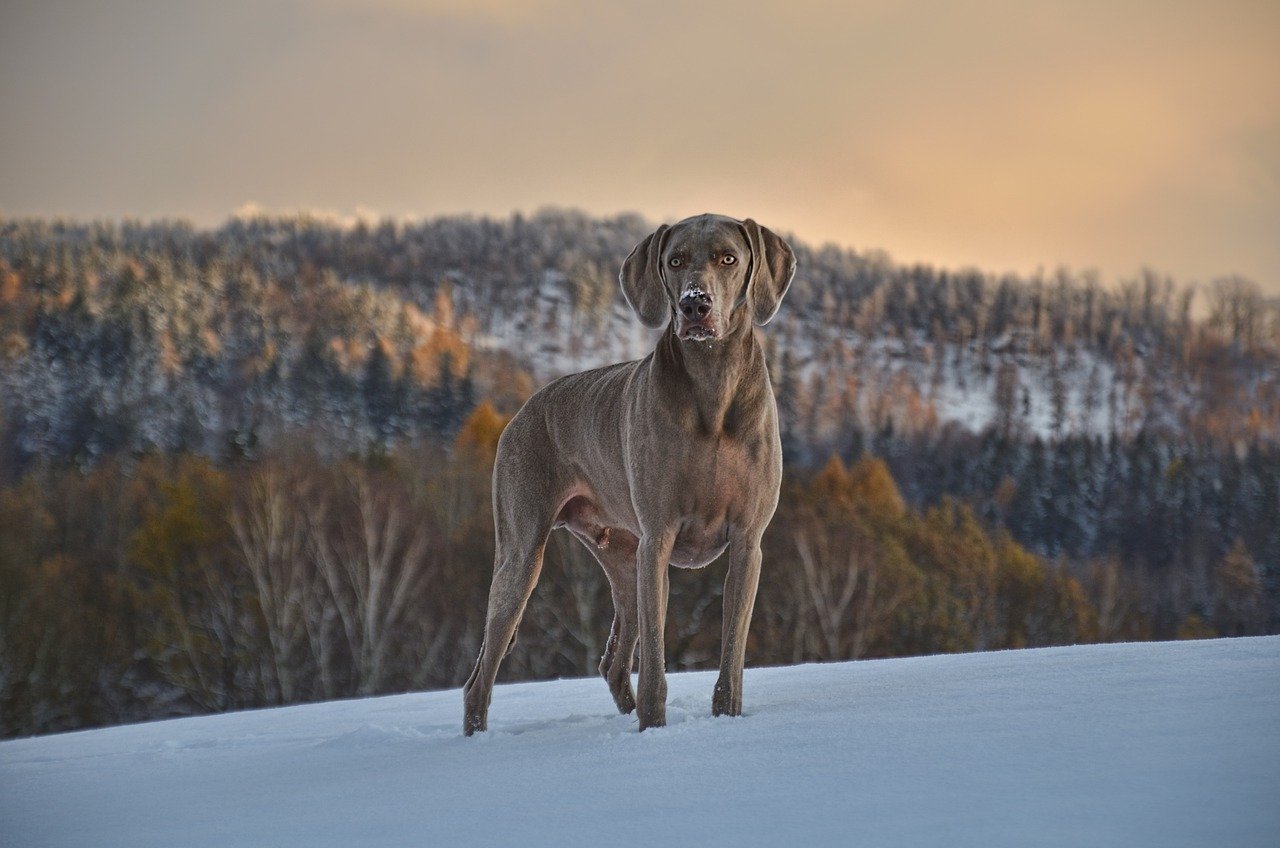
Weimaraners are known for their stunning looks and high energy, but their behavior can be a challenge for the unprepared. These dogs are intelligent and eager to work, but without enough exercise and mental stimulation, they become restless and destructive. Weimaraners are often called “Velcro dogs” because they want to be with their people at all times, leading to separation anxiety if left alone too long.
Their stubborn streak can make training tricky, as they’re quick to test boundaries and slow to accept rules they don’t like. Weimaraners need an owner who can provide structure, exercise, and plenty of companionship. When their needs are met, they can be wonderful, loving pets, but without it, they’re prone to acting out in ways that can test your patience.
Beagle: The Nose-Led Troublemaker

Beagles are beloved for their friendly, outgoing personalities, but their behavior can be a handful. These dogs are ruled by their noses, and once they catch a scent, they’re likely to ignore everything else—including your commands. Beagles are also known for their stubbornness and can be slow to house-train.
Their love of adventure and tendency to wander make them escape artists if not properly contained. Beagles are also vocal, often barking or howling at the slightest provocation. While they’re affectionate and great with children, their independent streak means they need consistent training and supervision. For owners willing to accept their quirks, Beagles are loyal and loving, but their behavior is rarely described as flawless.
Siberian Husky: The Free-Spirited Escapist
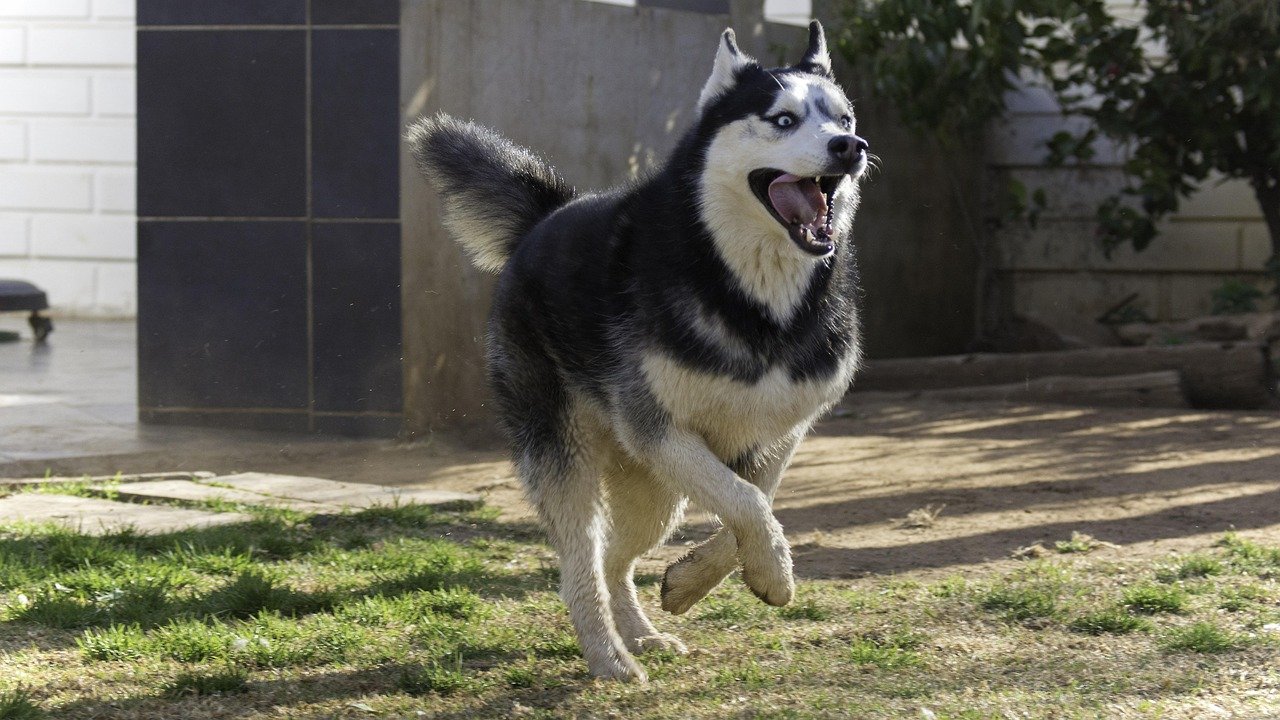
Siberian Huskies are known for their beauty and energy, but their behavior can be notoriously difficult to manage. These dogs are independent thinkers, often ignoring commands if they don’t see the point. Huskies are escape artists, capable of jumping fences or digging under them in search of adventure. Their high energy and need for activity mean they can become destructive if bored. Huskies are also known for their vocalizations, from howls to “talking,” which can be charming or maddening depending on your mood. While they’re rarely aggressive, their independent nature and stubbornness make them a challenge for inexperienced owners. Huskies need a firm, patient hand and plenty of exercise to keep their behavior in check.
From calm, obedient companions to independent free spirits, dog behavior varies widely across breeds. The 10 best-behaved breeds often shine thanks to their trainability, gentle nature, and eagerness to please—qualities that make them a dream for many dog owners. On the flip side, the 10 most challenging breeds aren’t “bad” dogs—they’re simply more headstrong, energetic, or sensitive, often needing experienced handling and extra patience. Understanding these differences is key to choosing a breed that matches your lifestyle and expectations. After all, every dog has the potential to be a great companion with the right environment, training, and love.





